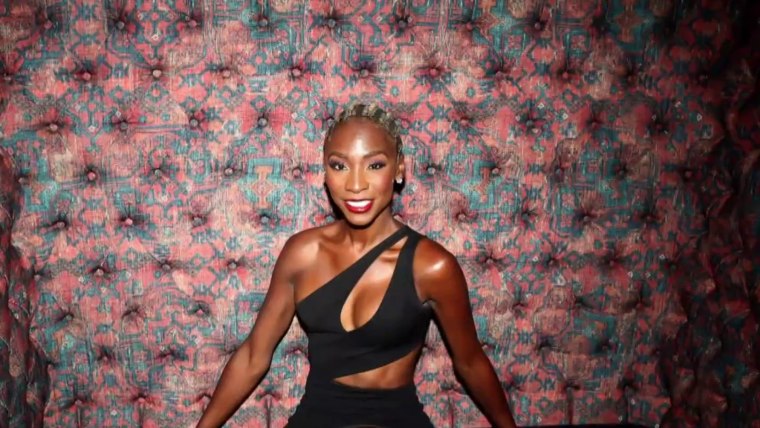While it’s no secret that there is a direct connection between political power and economic success, this is especially true for communities of color – and the women who hold them up.
The way to win economically is to also win politically.
Take the historic Voting Rights Act of 1965, which outlawed discriminatory voting practices, including literacy tests as a prerequisite for voting. That landmark law directly narrowed the wage gap between Black and white men.
But the passage of the Voting Rights Act also opened the door for reducing the wage gap for Black woman as well. While it is less apparent and indirect, the access to voting allowed Black women to elect candidates who were determined to close the wage gap not only for men but for women as well.
In fact, according to a 2020 study by the Washington Center for Equitable Growth, the Voting Rights Act reduced the overall racial wealth gap by almost 20 percent.
So how can we more effectively advocate for women of color, marginalized communities and grow Black wealth through the impact of political power, despite recent setbacks?
MSNBC Host Symone Sanders Townsend zeroed in on the question at the recent 2023 Essence Festival when she sat down with the Chair of the Democratic National Convention (DNC), Jaime Harrison, Congressional Black Caucus Foundation (CBCF) president and CEO Nicole Austin-Hillery, and Dr. Jeanine Abrams McLean, president of the civic engagement nonprofit, Fair Count.
The Supreme Court’s decisions to strike down affirmative action in higher education, rule in favor of a website designer who refused to work with same-sex couples and block President Biden’s plan to forgive student loans for millions of Americans shows the dismantling of not only political power but economic strength for targeted groups, specifically Black communities and women, who hold two-thirds of all student loan debt in the country.
For DNC Chair Jamie Harrison, the court’s rulings were hardly shocking, but rather a clarion call for people of color to vote in 2024.
“We have seen this court, the Roberts Court, the legacy of this Roberts Court is going to be one where we have less freedom, less rights, and more discrimination,” he told Sanders Townsend. “Voting is not a one-time thing … We can't just think because you vote one time that means everything that we have is going to be secure – you have to constantly do it.”
CBCF leader Nicole Austin-Hillery emphasized her organization’s plan to address the fallout from the end of affirmative action at their annual legislative conference in Washington, D.C.
“History has shown us that our people do not take a back seat,” she said. “If you want to be with decision makers, connectors, experts [and] policy people from around the country who are trying to make a difference, you need to be with us in September.”
But Austin-Hillery acknowledged the long road ahead in strengthening Black political power for the next generation. “We recognize that we have real issues in this country that we as a Black community have to figure out what systems we need to break down and what problems we need to solve,” she said. “We want to double down on what we do to ensure that [the] pipeline of Black leadership is strong and plentiful so that we have an army of warriors ready to take on the next level of problems.”
Dr. Jeanine Abrams McLean – president of the civic engagement nonprofit, Fair Count, which was founded by her sister and former Georgia State Rep. Stacey Abrams – insisted that most aspects of American life are political, such as access to healthy food and affordable healthcare. That’s why her organization has been dedicated to breaking down voting barriers like gerrymandering, lack of resources and more.
“We don't get the power that we deserve in our communities,” she said. “While we have to make sure that everybody votes, we also have to think about the larger ecosystem … and about the economic mobility of our communities.”
Dr. Abrams McLean cited substantial efforts from leaders like philanthropist Robert F. Smith, who gifted a $34 million grant to pay off student loan debt for all Morehouse graduates in the Class of 2019. That donation contributed to the overarching vision of his Student Freedom Initiative, which promotes economic mobility and generational wealth for students attending Minority Serving Institutions.
“Part of the problem where our communities can't build wealth is because Black folks are laden with student loan debt,” she said. “All of this is connected to our political power.”
As Black women continue to be among the most educated groups in the United States, they are impacted the most when it comes to the student loan burden. On average, Black women graduate with $37,558 in student loans – more than any other group – according to the U.S. Department of Education. The defeat of President Biden’s student loan relief plan, which was set to benefit women of color the most, exemplifies the critical need for greater political power among women of color.
Aside from building wealth, Dr. Abrams McLean shared that political power dictates everything from access to quality healthcare to broadband resources in many Black communities, particularly in the south. “We can't just sit here and be laser focused on one thing,” she added. “Everything works together and if we do it right, then our communities can truly prosper.”
Harrison – only the third Black leader to serve as DNC chair – said Democrats can bridge the civic engagement gap within Black communities ahead of the presidential election.
“We have to make sure that people understand that the [Democratic] party cares about you, and not just before an election, but all the time,” he said. That means addressing year-round issues like assisting families with federal student aid, educating communities on homeownership and more, he noted.
For Austin-Hillery, long-term investment includes civic education lessons in schools across the country. “If we are not giving our young people the tools and information they need, they cannot compete with those who are privileged,” she said. “So, take that power and put it back in your schools.”
Finally, she pointed to the responsibility among local leaders – in politics, business and education – to get involved and help their communities be heard. “Don’t wait for the leaders who are on these stages to be the problem-solvers,” she added. “Speak up and speak out … We each have this power and that is how we are going to make a difference.”





